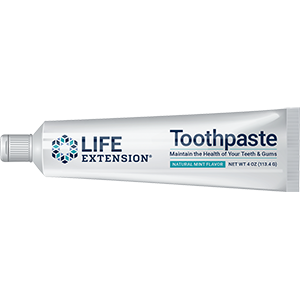Critically ill have reduced levels of CoQ10
Friday, May 17, 2013. A study conducted at Massachusetts General Hospital in Boston, described in an article published online on April 22, 2013 in the Journal of Critical Care, revealed lower levels of coenzyme Q10 (CoQ10, a coenzyme involved in the production of energy) in critically ill patients in comparison with healthy men and women.
"A recent study has reported lower plasma CoQ10 levels in 14 patients with septic shock compared with 16 healthy control individuals," write Andrea Coppadoro, MD and colleagues in their introduction. "To date, however, CoQ10 status in patients without septic shock who have critical illness is unknown. Based on our preliminary data in mice that mild sepsis decreased plasma CoQ10 levels without causing septic shock or death, we hypothesized that decreased plasma CoQ10 concentration is not limited to patients with septic shock, but also observed in a broad range of critically ill patients without septic shock."
The study compared 36 adult intensive care unit patients with 18 healthy controls. Septic shock was present in 12 of the critically ill subjects. None of the participants in the current study were using statin drugs (which inhibit the synthesis of CoQ10).
While the lowest levels of plasma CoQ10 occurred in septic shock patients, levels were lower in critically ill patients both with and without septic shock in comparison with healthy subjects. Reduced levels of CoQ10 were also associated with increased age, and with a decline in the ability to perform activities of daily living after hospital discharge. The authors remark that CoQ10 supplementation has been associated with improvement in activities of daily living scores, neuromuscular function and other long-term outcomes in certain groups including heart failure and Parkinson's disease patients, suggesting that supplementation could also benefit the outcome of the critically ill. "Our data provide a rationale for further observational and intervention clinical studies to define CoQ10 insufficiency and evaluate the safety and efficacy of CoQ10 supplementation in critically ill patients," they conclude. |
 |
|
The results of a meta-analysis reported online on April 12, 2013 in the journal Critical Care Medicine reveal a lower risk of mortality among hospitalized patients with sepsis who received intravenous selenium supplementation. Sepsis is an inflammatory state of the whole body caused by the immune system's reaction to infection. The condition can progress to septic shock, a condition characterized by a drop in blood pressure and organ dysfunction that can result in death if untreated.
For their analysis, researchers at McMaster University in Ontario selected nine trials that included a total of 792 men and women admitted to an intensive care unit with systemic inflammatory response syndrome (SIRS), sepsis, severe sepsis or septic shock. Patients received 474 micrograms or more intravenous selenium daily, or a placebo with or without a maintenance dose of selenium of less than 100 micrograms per day for varying periods. (Some patients received higher loading doses followed by reduced maintenance doses.)
Although the length of intensive care unit stay or risk of pneumonia did not vary significantly between subjects who received selenium and those who received a placebo, men and women who received selenium had a 27% lower risk of death during the course of their hospitalizations. Because sepsis is associated with an increase in reactive oxygen species and a reduction in the body's own antioxidant capacity, authors Waleed Alhazzani, MD and colleagues hypothesize that supplementation with the mineral may improve the outcome of septic patients by enabling increased production of antioxidant selenoenzymes.
"If even a small favorable impact of selenium was genuine, given the low risk of adverse effects, and the high human and financial cost of critical care, selenium supplementation deserves consideration in more rigorous future research," they conclude. |
|

|

|
|
Carnitine:
- Helps maintain cellular metabolic activity by assisting in the intracellular transport of fatty acids from the cell fluid into the mitochondria, where fats are oxidized to generate cellular energy.
- Helps inhibit excess accumulation of cellular debris.
- Supports a healthy concentration of nitric oxide, which helps endothelial cells relax and maintain blood flow—supporting proper blood pressure.
- Helps the body maintain healthy body fat composition, which in turn supports insulin sensitivity and healthy blood sugar levels already within normal range.
- Supports brain cells' natural defenses against age-related memory and cognitive decline.
Support the optimum functioning of your mitochondria with a high quality L-carnitine supplement—now available as L-Carnitine Powder with Natural Lemon Flavor. The advantage of L-Carnitine Powder is to enable convenient supplementation with higher doses. Those who prefer capsules can choose from several carnitine formulas available from Life Extension.
|
|

|
|
Scientific evidence links poor oral health with inflammatory and oxidative stress throughout the body, particularly concerning arterial health and immune function. Fortunately, studies show that regular brushing, flossing, and rinsing with a mouthwash help promote good oral health.
Life Extension® Toothpaste is fluoride-free and contains innovative ingredients for effective oral care:
- Coenzyme Q10 — a powerful antioxidant, effective in promoting healthy teeth and gums
- Green tea — an herbal antioxidant containing catechins
- Hydrogen peroxide — cleanses teeth and gums
- Aloe Vera — facilitates natural healing
- Xylitol — a natural sweetener that won't decay teeth
- Folic Acid — for healthier and more resilient gums
- Lactoferrin — supports healthy oral hygiene
- Squalane — an antioxidant derived from shark liver oil
|
|
|












